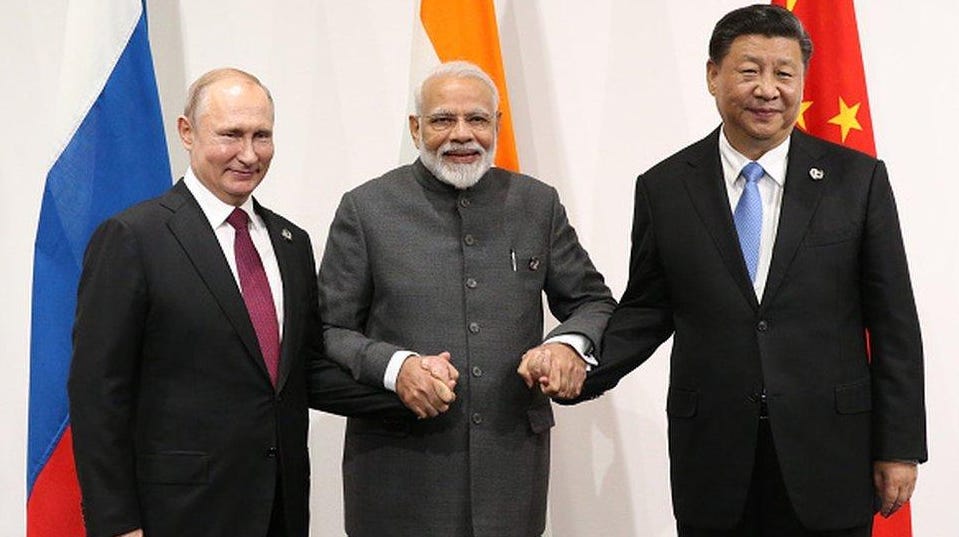How the West Snookered Itself in Energy Geopolitics
The Tianjin summit underscores Europe's slide into irrelevance
The recent Shanghai Cooperation Organisation summit in Tianjin, China, offered vivid optics of a shifting global order. Images of Indian Prime Minister Narendra Modi, Russian President Vladimir Putin and Chinese President Xi Jinping sharing smiles and warm embraces spoke volumes about a realignment that few could have predicted at the start of 2025. Against the backdrop of a "binding memorandum" for the Power of Siberia 2 (POS-2) pipeline supplying Russian natural gas to China, this summit was no mere public relations exercise.
The summit marks a profound shift in global energy geopolitics, one that underscores Europe’s slide into irrelevance, the competitive headwinds facing US LNG exports and the spectacular failure of former National Security Advisor Zbigniew Brzezinski’s vision of US strategic supremacy over Russia largely constructed during the tumultuous 1990s. The United States, in its pursuit of Eurasian hegemony, has alienated a critical ally in India, pushed Russia and China closer together, and left Germany — once an industrial powerhouse — prostrate. This is a tale of hubris, miscalculation and unintended consequences.



